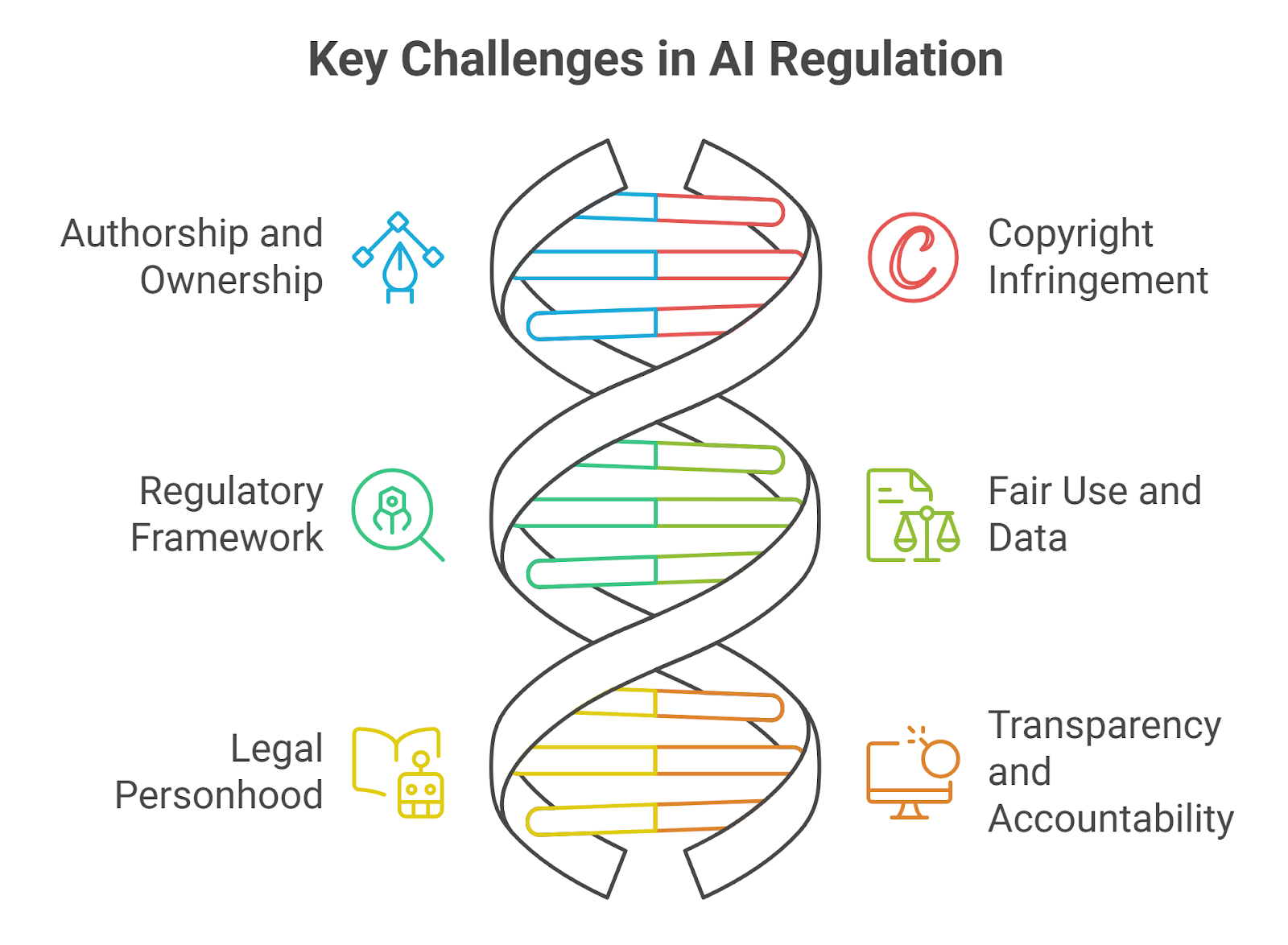Font size:
Print
Generative AI and Copyright
Context: The rise of generative AI models has triggered global debates around intellectual property (IP) rights, particularly in the context of copyright infringement.
More on News
- With AI models trained on massive datasets — often containing copyrighted material — the central legal question is: Does training and output generation by AI violate existing copyright frameworks?
- Recent U.S. court rulings in 2025 — Thomson Reuters vs Ross Intelligence, Bartz vs Anthropic, and Kadrey vs Meta — have provided some clarity but stopped short of settling the issue completely.
- The legal status of AI-generated content and the use of copyrighted data for training remains ambiguous and jurisdiction-dependent.

Can AI Training on Copyrighted Content Qualify as Fair Use?
- In the U.S., courts have increasingly leaned toward viewing transformative use of copyrighted material — such as for training AI — as potentially falling under ‘fair use’.
- The crucial legal test lies in whether the AI’s outputs replace the market for the original works, or add new value and serve a different purpose than the original.
- If AI-generated content is transformative and does not directly compete with or substitute the original, it may be protected under fair use.
- However, when pirated data is involved, the courts remain cautious.
What Did the U.S. Courts Rule in Recent AI Copyright Cases?
- Anthropic Case (2025): Judge William Alsup ruled that training an AI model on copyrighted data can be viewed as transformative, akin to a human learning from existing literature.
- However, the court allowed the trial to proceed because Anthropic may have used pirated content, which cannot be shielded by fair use.
- Meta Case (2025): Judge Vince Chhabria ruled in Meta’s favor, stating the plaintiffs failed to show market harm due to AI-generated outputs.
- The court acknowledged the need for revenue-sharing models between tech companies and original content creators.
- Importantly, ‘fair use’ was upheld as a protective measure for AI training, though unauthorised scraping and future market impacts remain areas of concern.
What Is the Legal Status of Databases Used in generative AI Training?
- The use of databases and copyrighted compilations for AI training raises additional IP challenges:
- IP laws, contractual terms, and privacy regulations govern database usage.
- Fair use, text and data mining exceptions (as in the EU and U.K.), and temporary copying allowances create potential legal pathways.
- However, the absence of a globally harmonised legal standard leaves room for inconsistent interpretations.
- Moreover, authorship of AI-generated content — and whether such content qualifies for IP protection — remains uncertain, especially since most legal systems require human creativity for copyright eligibility.
What Are the Implications of These Rulings for India?
- India’s Copyright Act, 1957 grants creators exclusive economic rights, including reproduction and adaptation.
- However, the use of copyrighted works for AI training without permission may still be challenged unless covered by Section 52 (fair dealing exceptions).
-
Key Points for India:
-
- IPR enforcement mechanisms in India include both civil and criminal remedies.
- The ANI vs OpenAI case is expected to test the applicability of India’s IP laws to generative AI systems.
- India’s stance is that its existing legal framework is adequate to address AI-related IP challenges, although specific provisions for AI-generated content are still lacking.
- Being a signatory to major global IP treaties, India recognises rights created by legal persons and enforces them domestically.
Subscribe to our Youtube Channel for more Valuable Content – TheStudyias
Download the App to Subscribe to our Courses – Thestudyias
The Source’s Authority and Ownership of the Article is Claimed By THE STUDY IAS BY MANIKANT SINGH



